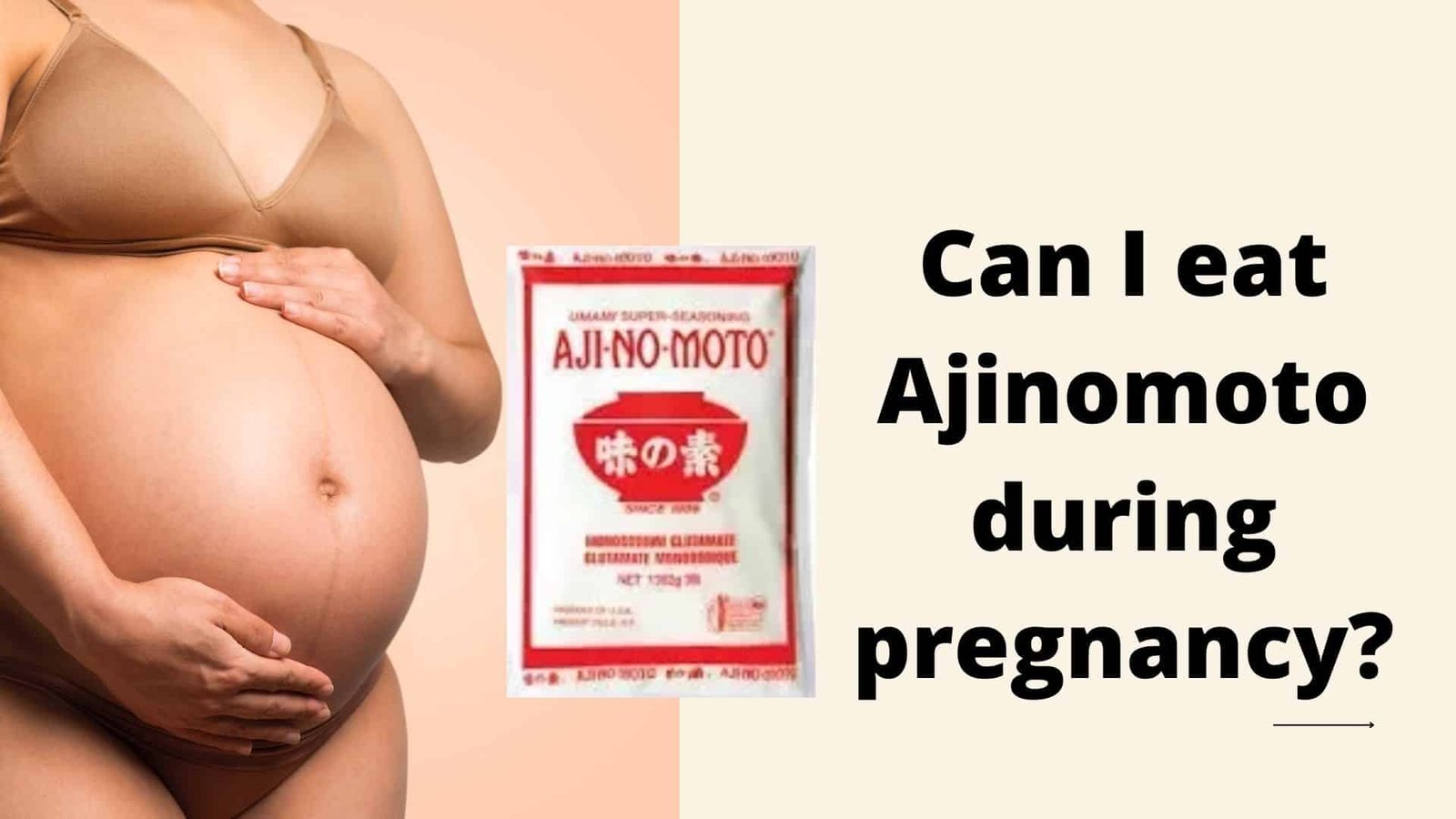Can I eat Ajinomoto during pregnancy? Ajinomoto, also known as monosodium glutamate (MSG) in medical circles. You may have heard that consuming too much of it may be harmful to your heart, and now you may be concerned about whether or not it is safe for your unborn child.
Ajinomoto is a flavoring compound that is widely used, however it is most often seen in usage in Chinese cuisine. And although it can enhance the flavor of the dish, there is a possibility that it might have some adverse consequences if ingested while pregnant. The question now is, what is the truth? Is it OK to consume Ajinomoto when one is pregnant? Is there a risk?
What exactly is Ajinomoto (MSG)?

Photo credit: FoodsNG
Ajinomoto is a flavor enhancer that is often used in Chinese cuisine. The flavor enhancer known as Ajinomoto is produced by a company in Japan called Ajinomoto Corp.
Glutamate is the salt form of the substance known as glutamic acid, which is a non-essential amino acid. In this context, it is essential to be aware that the human body naturally creates this salt on its own. The issue arises when we use Ajinomoto for business purposes, particularly when we have too much of it.
Ajinomoto during Pregnancy
Eating Ajinomoto during pregnancy, your body goes through a lot of changes, both hormonal and physical. These changes may be rather significant. You could feel that you have an overwhelming desire for food that is rich in ajinomoto during pregnancy. If you have an allergy to ajinomoto, you should be sure to stay away from it ajinomoto during pregnancy.
Its sometimes safe for take ajinomoto during pregnancy and it has been the subject of some controversy. The good news is that as of right now, there have been no reports of any serious adverse effects caused by Ajinomoto in either the mother or the fetus.
Ajinomoto has been put through extensive testing by the Food and Drug Administration (FDA), which has concluded that it is “generally regarded as safe.” But you have to avoid taking it in large quantity and when being allergic to it.
Risk Regarding consuming Ajinomoto During Pregnancy
Heartburn
One of the most frequent discomforts that pregnant women experience as their pregnancy progresses is heartburn. The third trimester of pregnancy is associated with a notable increase in the frequency of heartburn.
Since Ajinomoto is an artificial additive, there is a chance that it will further increase the probability of the preexisting problem becoming worse. It is possible that the digestive system may have to work harder to digest it, which may result in heartburn.
Migraine
It is recommended that you stay away from Ajinomoto if you are pregnant and suffer from migraines. Ajinomoto, like nitrates and aspartame, has been linked to an increase in the number of migraines experienced by pregnant women.
During pregnancy, your body goes through a lot of changes, hormonally, physiologically, and emotionally. As a result, your body is more susceptible to unpleasant responses, and migraines are one of them.
Weight gain
One of the potential adverse effects of Ajinomoto is weight gain due to the fact that it is almost exclusively found in processed and canned foods, both of which are unhealthy.
A quick increase in weight might cause further complications, such as back discomfort. Keeping a close eye on how much junk food and other items that contain Ajinomoto you consume while you are pregnant is thus very essential.
Allergies
If you have ever had an allergic reaction when you eat Ajinomoto during pregnancy, it is strongly recommended that you abstain from consuming it while pregnant due to the possibility that the symptoms would be more severe.
Headache, numbness in muscles, tingling in muscles, nausea, chest discomfort, excessive perspiration, and flushing are some of the symptoms. Other symptoms include tingling in muscles.
Water Retention
One of the most prevalent issues that women have during pregnancy is fluid retention. When a woman is pregnant, her body generates blood and other bodily fluids at a rate that is fifty percent more than normal in order to provide enough nourishment for the developing baby.
However, extreme occurrences of it remaining inside the body for an extended period of time might be an indication of preeclampsia, a condition that requires prompt medical treatment. The offending substance is salt. Because monosodium glutamate (MSG) is a sodium salt of glutamic acid, consuming it while pregnant has the potential to make the condition of water retention worse.
In conclusion
Stay away from Ajinomoto completely if you have ever had any negative reactions to it, even before becoming pregnant. If there were none, then eating some.
Also, consumption on a regular basis may result in unpleasant side effects such as heartburn and water retention. In any event, it is essential to consult with your doctor before you are going to consume it or if you are experiencing any of the adverse effects listed above as a result of eating it.
